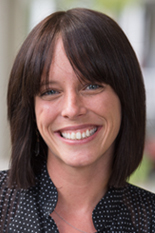College of Visual and Performing Arts Welcomes New Full-Time Faculty
Nine new full-time faculty joined the College of Visual and Performing Arts for the 2025-26 academic year. One of the faculty members is the college’s new chair of the Department of Drama. The new full-time faculty members are: Adrienne Dagg…



